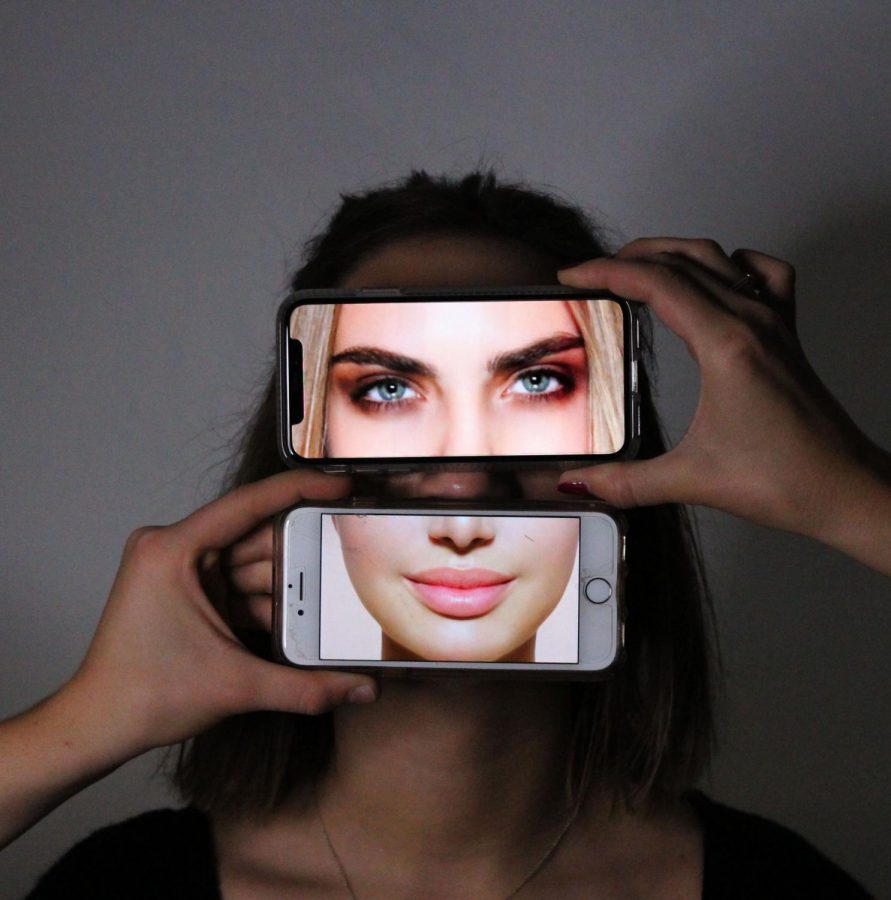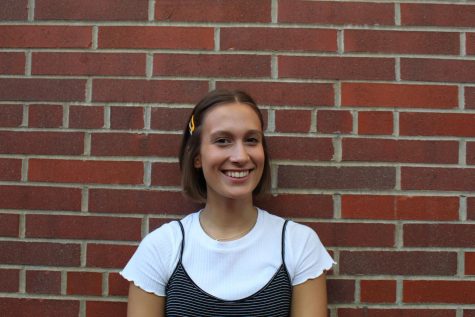OPINION: Social media can ruin your self esteem, take it from someone who knows
November 15, 2018
I was 11 years old when I created my first Instagram account. I proceeded to post random things that I thought to be funny, relatable or just an update about my life. I felt like I was a part of something bigger. A way to stay connected with a whole world of people. As I grew older it became more important how many likes my pictures got. In order to get the likes, I had to come off as “cool”. The pictures became more about making myself look better and less about things I simply found interesting. The people I saw on my feed went from amusing memes to models. Now, social media is almost a mindless way to pass time and unconsciously lower my self-esteem. I no longer see it as a way to stay connected. Social media and today’s society are creating an environment for people to hide their low self-esteem, and create a personality different from who they are in real life.
Online, you see perfect image after perfect image of people who look nothing like they do in the real world. I, like so many others, automatically start to compare myself to this social facsimile. Every week, I spend hours on Instagram looking at models and comparing their perfectly toned bodies to mine, which I guarantee you looks nothing like that. It leaves me wondering, how in the heck can I look like that? Do these people eat? Is this really how they are?? There is no way anyone is “on” all the time in real life. Constantly comparing yourself to others and examining your flaws can harmfully contribute to body dysmorphia: focusing on a minor or imagined flaw.
Users pose perfectly to look as best as possible. No comments means no one likes you and the more comments you get equates to more popularity. We use spam accounts to show what we’re really thinking, essentially creating another personality to live up to. Social media has given me new confidences that I wouldn’t have in real life, and at the same time shown me all my imperfections that I feel uncomfortable posting to the world. If I can’t feel confident in my posts, it is hard to feel confident in everyday life.
And I have to wonder if this cult of comparison is strictly unique to our generation. My parents love Facebook. Like me, they post, share and like to their heart’s content on this platform. But, unlike me and my peers, they share without inhibition. They are truly themselves on Facebook. My mom doesn’t know what an editing app is and posts the ugliest pictures of me without even thinking twice. They aren’t out to get likes or comments.For them it is simply sharing what is happening in their lives with friends. This is the purest form of social media and, in a sense, living up to what it is actually meant to do for us.
Obsessive editing drains self-esteem and creates a harmful equation: the more time spent editing, the more imperfections you have. A non-edited photo is a photo not ready for the world to see. Posting a photo without editing, not even a filter, is taboo. When I edit a photo, I always try to erase all of the things I don’t want others to see. I tend to take a bajillion pictures in hopes of finding just one that lives up to the standard of “instagram worthy”. Then I waste time picking one, and picking a filter with contrast, exposure, grain, highlights and shadows, until it appears to be what I hope is “naturally perfect”.
We need a way to fix this problem. You could say that we just need to stop comparing ourselves to other people we see online, because deep down we know that what they post online isn’t who they actually are. That we should look at each post as a “wow they really have a lot going for them, but so do I”. When it really comes down to it, the only way to escape losing at least some self-esteem in social media, is to just not give yourself the opportunity to go on it. What if being completely confident in your true self was attainable. No need to be perfect or downgrade yourself because others seem better. If we completely rid ourselves of social media there comes a possibility that we would be forced to get to know people on a more personal level. We might begin to appreciate our differences instead of scrutinizing ourselves for being different. We might become interested in who others actually are. Hopefully it’s not just smooth faces and skinny bodies.









